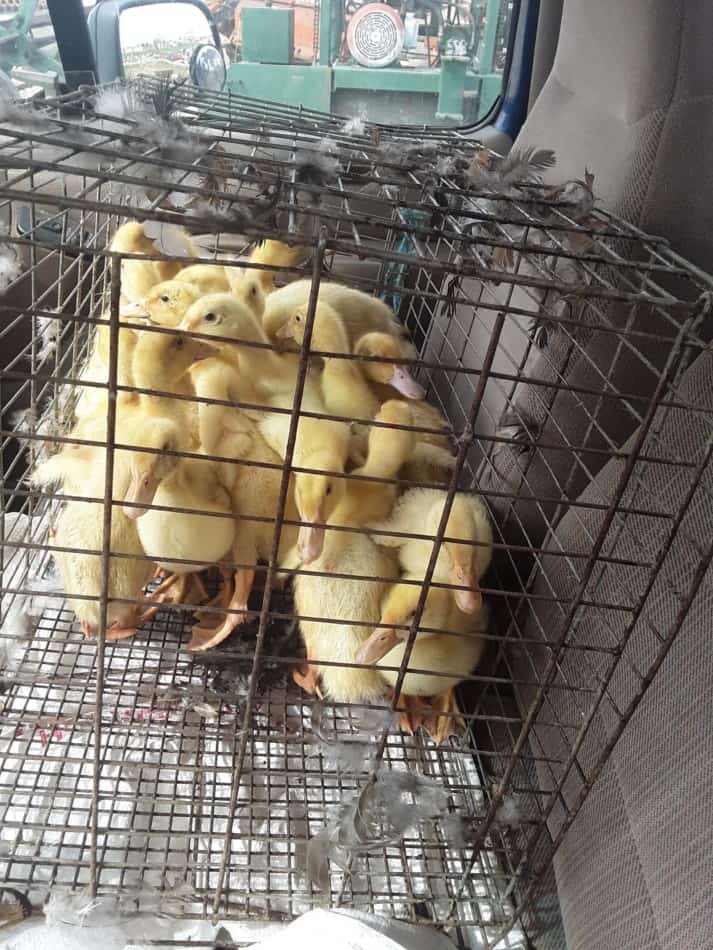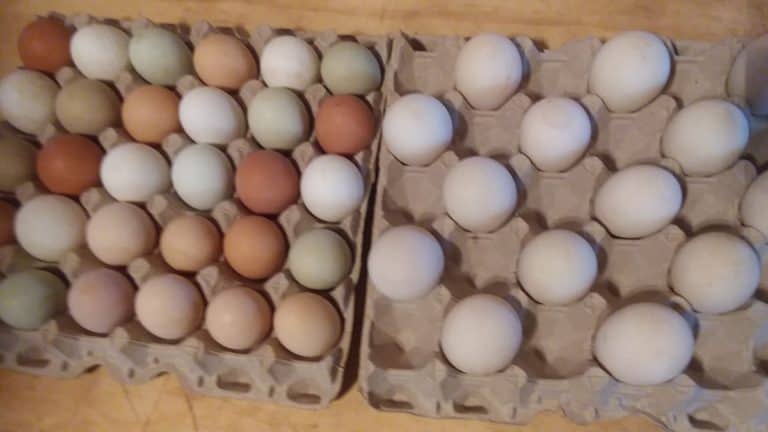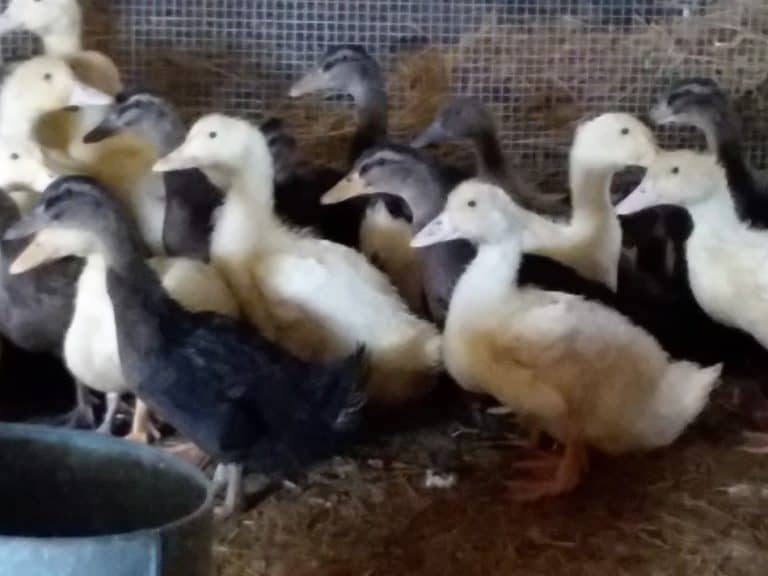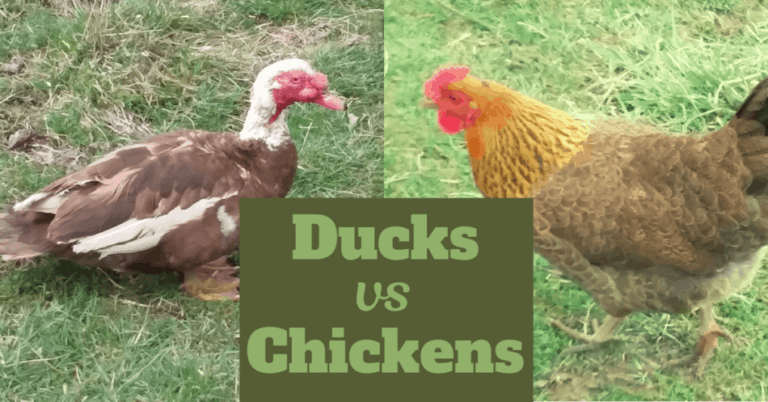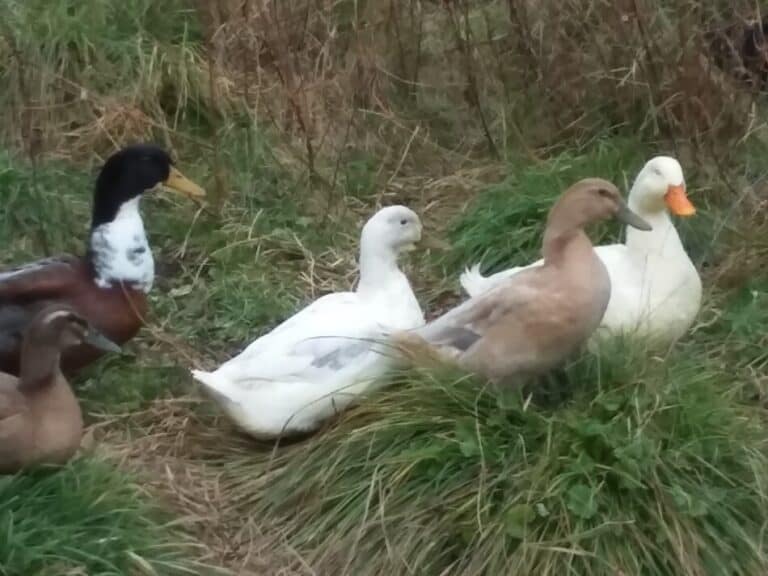Duck Breeding Stock: How To Choose Your Breed And Individual Ducks
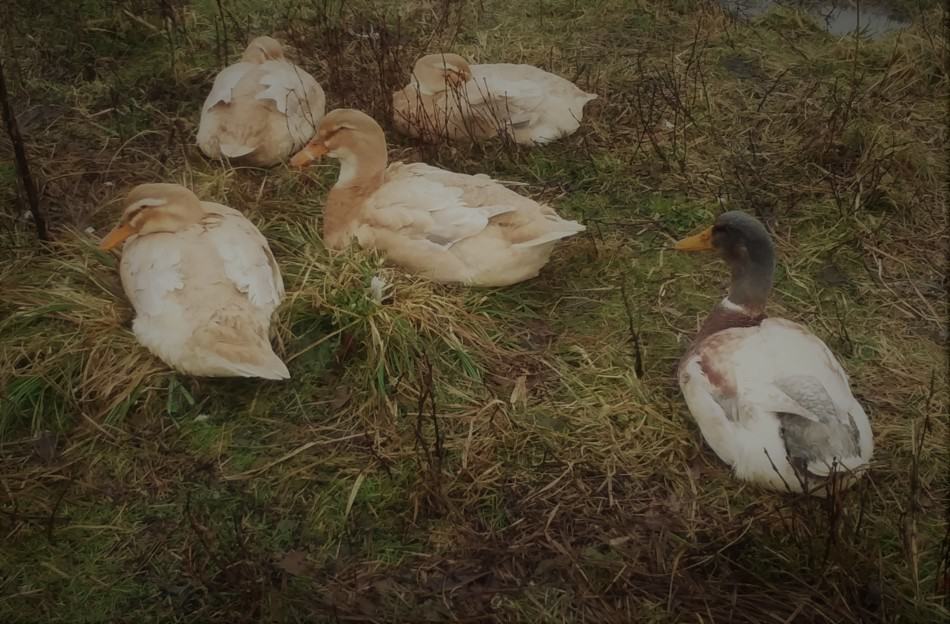
It’s no wonder backyard and small farm ducks are on the rise! If you’ve looked around, even a little, you know that there are plenty of duck breed choices.
Which duck breed will suit you and your family the best? Once you find your perfect breed, you’ll get to pick your individual ducks!
Choosing the duck breed requires that you know what you want from your ducks: meat, eggs or looks, then researching the breed standard and picking birds that physically meet the breed standard, paying special attention to correct body carriage and structure and breed appropriate coloration.
The obvious place to start with duck breeding stock is to determine your main purpose for the breed of duck you get.
What is it that you want the ducks to do for you?
- Is your main purpose meat?
- Do you want the most eggs per duck?
- Are you just thinking of some backyard buddies that will keep the bugs out of your lawn?
Next, consider what you are willing to do for the ducks, how much effort are you willing to put into your duck enterprise? All breeding stock will require some effort, some more than others.
- Are you willing to gather eggs?
- Are you willing to hatch the ducklings for the larger breeds that are too heavy to hatch their own babies?
- Are you willing to cull based on coloration?
- Are you willing to deal with the “chatter” if you prefer one of the more talkative breeds?
Choosing the right duck breed
Now, we start to consider what you and your farm or backyard have to offer. Combine that with the main purpose for your ducks and you will get the ideal breed for you and your situation.
Is Raising Ducks For Meat Worth It? goes over the things you need to figure into your budget when raising ducks for the freezer.
The “best breed” of ducks
It can be tempting to listen to a friend or a popular author telling you a certain breed it the best. I’m sure that she is correct, from her point of view. That last part is key.
You will have a different set of resources for your ducks. You may even have a different main purpose in getting ducks. If that’s the case, how can you both do the best with the same breed? While it is possible, it’s not likely.
The best breed of ducks is the breed that matches your wants and needs and the ducks wants and needs.
No breed or situation is perfect, but some combinations just make more sense and will be easier to work with than others!
For anyone thinking you will need multiple breeds of ducks to suit your family’s needs, not necessarily. You could, of course, but you would not need to.
All breeds provide meat and eggs, it is a matter of what is emphasized in the breed history that tips the scale one way or the other.
For breed specific and more detailed information about each breed, including pros and cons, read my article 16 Duck Breeds For Eggs And Meat.
A few notes before we get started:
- The few breeds listed in the categories below are just to get you started thinking. These are not all inclusive lists, by any means!
- I chose one category per breed for simplicity, however, many duck breeds would actually fit in multiple categories!
Primarily meat producing duck breeds
Meat breed ducks are ducks that are selected and bred for meat production and growth. Some of them will be fast growers, others not so much.
Before we go too far into this category, realize that it is not unusual for a meat breed duck to have trouble hatching her eggs.
She wants to and she tries to, but she can be too heavy. This is not a blanket statement, some meat breeds do just fine, but some do not.
If you decide to get a breed that is not likely to be able to hatch her own eggs, you have a few options.
- You can have a few of another breed of duck hens that are hatching superstars and transfer eggs to her nest.
- You can recruit a broody chicken.
- Put the eggs into the incubator, (this is what we usually do).
The second point here is that meat breeds are really divided into Pekin and all other meaty ducks.
I am referring to how quickly your ducklings will grow. Pekins will reach market weight in 8 weeks or so, most other breeds, I’ll say 18-20 weeks.
A few breeds will take longer than that. This is not a problem, just something to be aware of.
Popular meat breeds of ducks
- Pekin
- Muscovy
- Rouen
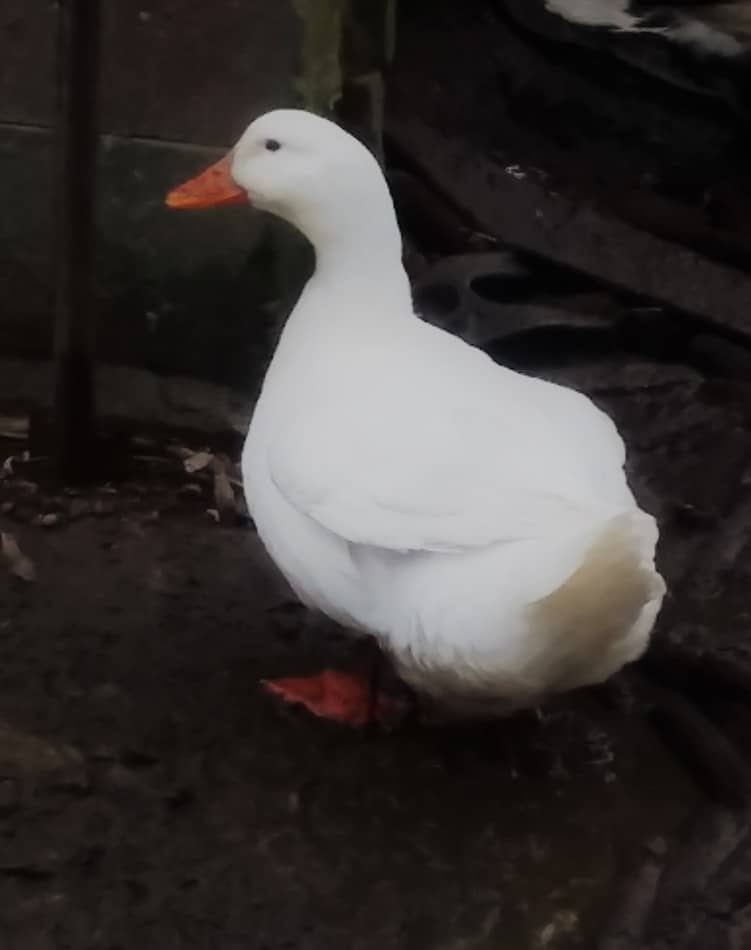
Primarily egg producing duck breeds
The word is out, small flock raisers are looking to ducks (instead of chickens) for household eggs or even an egg selling side business.
Ducks lay their eggs first thing in the morning and the egg specialist duck breeds produce just as many eggs as a chicken.
It’s easy to see why keeping ducks for eggs is on the rise!
Egg producing ducks are the breeds that will lay the most eggs per year per duck than most other duck breeds. Of course, egg producing ducks also provide meat, but that is not their main purpose.
There will be a differences in egg sizes and shell colors between the breeds.
Popular egg producing duck breeds
- Khaki Campbell
- Golden (hybrid) layer
- Indian Runner
This may sound crazy, but the duck we like the best for egg production is the Pekin!
For some reason, the egg laying ability of a Pekin always gets pushed aside in favor of it’s growing ability. Pekins are great layers of big, white eggs.
In case you didn’t think of it this way, all ducks are both meat and egg producers. Other wise there would be no more generations of ducks!
A breed put in the egg producing category, while excelling at producing eggs, will still make a fine dinner!
Room To Raise Ducks goes over what your ducklings to ducks need as far as pen space and how to tell when they are comfortable or need a bigger area.
3 Dual purpose duck breeds
Duck breeds that are considered to be dual purpose are a Jack of all trades type duck.
The up side here is dual purpose ducks are pretty good at nearly anything you would want from a duck. The other side is that dual purpose ducks will never beat the specialist breeds.
For example: if you are considering starting up a duck egg business, you will want to consider an egg producing specialist duck.
You will get more eggs for your feed money from her than from a dual purpose breed.
If you want one breed of duck that is going to serve all of your needs for both meat and eggs, dual purpose is the way to go.
If you are leaning heavy one way or the other, get a more specialized breed that will suit you better.
Common dual purpose duck breeds
- Swedish
- Cayuga
- Welsh Harlequin
Rare or unusual duck breeds
There are some cool duck breeds available now! The hatcheries are really upping their game with breed selection. Not to mention the online offerings of individual duck breeders that are so easy to find now.
Whenever I think rare breeds in the U.S., I think The Livestock Conservancy, this is a link to their poultry page.
They keep a list of rare breeds and have a section on breeders who have those animals. If you are interested in rare breeds, The Livestock Conservancy is the place to start.
3 Rare or unusual duck breeds
- Saxony
- Silver Appleyard
- Buff
We have Saxony ducks on our farm, (a few of them are pictured at the beginning of this article).
As far as breed characteristics and ability, I would actually put them in the dual purpose category. They are a great all round duck and we like their looks and attitude.
Since they are listed on The Livestock Conservancy rare breeds list, I put them here.
Choose healthy ducks that meet breed standards
Choosing healthy ducks is your first consideration. If you see anything other than ducks in perfect health, walk away.
I can not emphasize this point enough: never, never, never buy unhealthy ducks!
The second thing to know regarding selecting individual ducks for your breeding stock is that show lines and purebred are not the same thing!
If you want to have any chance at winning in poultry shows with your ducks you must get show line ducks!
A production breeding line of ducks is super as far as purebred and suiting your purposes for raising ducks (unless you want to show them).
How do you get a production (non show) line of ducks?
That’s easy, the production ducks are the ones you will be buying at most hatcheries or farms. You will have to seek out a show line of ducks.
I’m going to continue with the assumption that you are wanting a specific duck breed but are not looking into show lines.
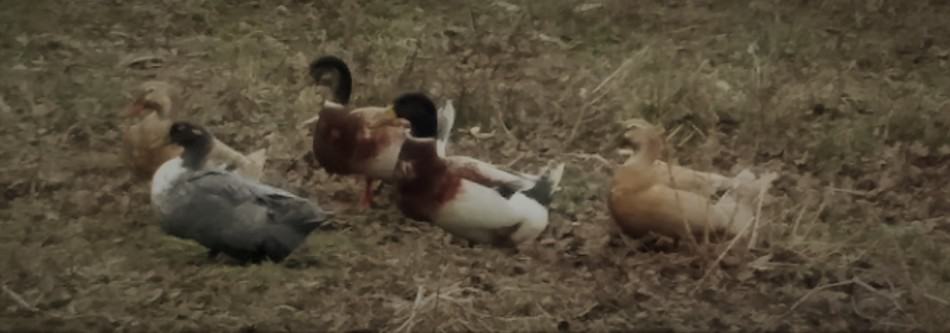
Know the breed standard for your ducks
Part of the responsibility of a breeder, of any animal, is to know the breed standards of your particular breed and make sure you are keeping ducks that are meeting the standard.
Physical faults are the easy birds to cull, some “faults” are harder to cull.
For instance, consider the supposed to be solid colored duck with a big black splotch on her back.
She might be cute, but she has to be culled if your chosen breed specifies solid colored only.
Preserving the integrity of your chosen duck breed
To preserve breed integrity, you must stick to the breed standards with your breeding stock.
This means you must know the standards and select to maintain them.
You must also be vigilant in your selection of breeding stock sources!
Hearing something like “Oh, that’s just a few dark feathers, it’s no big deal” from the guy who wants to sell you White Muscovys is a big deal.
White is white, no exceptions. You are buying breeding stock, not pets, they must be on point!
If you just want cute ducks for your backyard, super, get whatever catches your eye.
If you want to possibly supply breeding stock or just sell a few purebred ducklings each year, chose the ducks that are correct in both structure and patterning.
Not all ducks will meet the higher standards required of a breeding stock duck, all responsible breeders know this.
This selection process is why breeding stock costs more! For ducklings raised from your ducks to be top quality, you must start with top quality ducks and drakes.
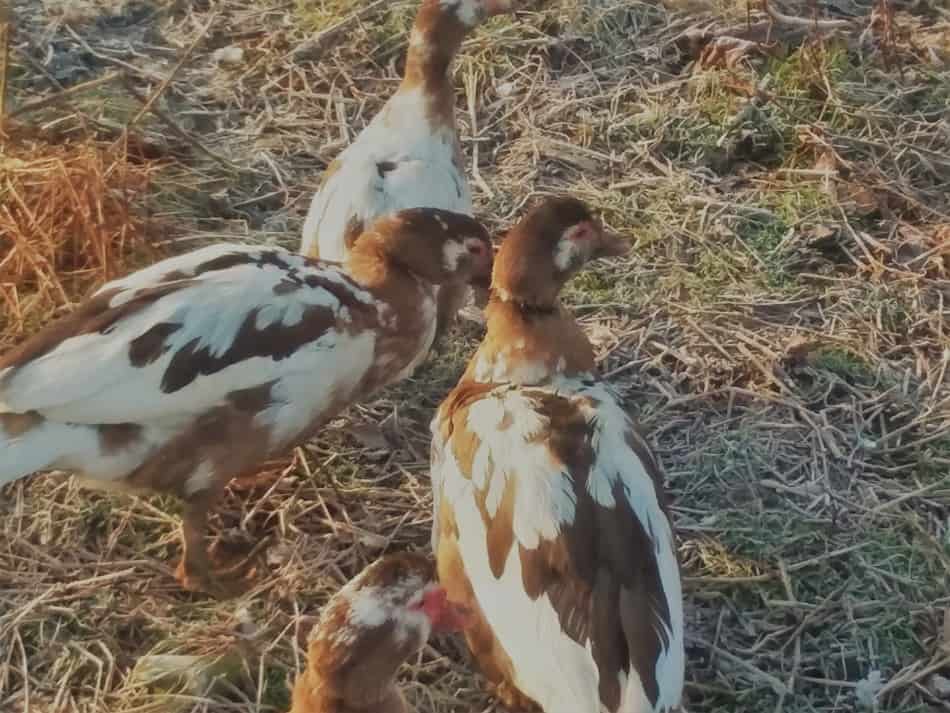
Buy ducks from someone with experience
It can be tempting to just order some ducklings and get what you get, and you are welcome to do that, of course.
If you want to be sure that once the ducklings are grown, you will have the high quality breeding stock ducks you are looking for you need to buy from a breeder.
Look around at the breeder’s set up. Ask about how he interacts with his birds and be up front about your goals.
If you want a duck to hatch her babies herself, ask the breeder if his raise their own ducklings!
Breeders want you to be successful. Buying ducks or ducklings from a breeder will support a small farm enterprise and establish a relationship with a knowledgeable person, should you need a bit of encouragement or advice later.
Select drakes for conformation and growth
You’ll want to get a well grown drake that has the correct body structure and color pattern. Be sure to look at the drake from the side and the front.
From the side you are evaluating the silhouette or his body outline. How deep is the keel, does he hold his body very horizontally or very vertically?
How is the feathering? How wide is the chest?
Remember, keep to breed standard here, wider, standing vertically or whatever, is only better if that is the characteristic of your chosen breed.
Does he look well grown compared to his peers?
A caution here: weirdly big is not good, neither is weirdly small. The first is likely a cross bred and the second is not healthy or a cross, as well.
Select ducks (hens) for conformation
Hopefully, you have read the drake section above, since most of the information is the same! Take a glace back, if you skipped it the first time.
You will want ducks to be well grown, but not weirdly big! It is tempting to see a really big female and say “wow, that is the best duck ever!”
Actually, that is a duck that is unlikely to breed! Weirdly big in ducks is just weird, nothing good about it for you.
The “best ducks ever” are the ones that you put in a group and can’t tell one from the next, meaning they are a healthy, well grown, uniform group. That meets breed standards, of course!
Selecting younger ducks is difficult
It can be tempting to buy juvenile ducks or even ducklings, to get stared with your breeding stock.
This is an option, of course, but not your best option.
No one, and I mean no one, knows what an animal, ducks or anything else, will look like when it is at maturity until it gets there.
The more experienced the person, the better he will be at guessing, but it will still be a guess!
If you want to know for sure what your ducks will look like when they are mature, buy mature ducks.
If you need a duck or drake to be very specific in performance or looks, you’ll need to buy a mature bird.
Ducklings are definitely a less expensive way to get started with ducks.
Especially, since you are a beginner or if you will be happy as long as they are purebred ducks.
If you are easy to please, then ducklings are the most economical way to get going with ducks.
If you have more specific needs in mind, don’t let me scare you off of the younger birds!
I just want you to be aware of the potential for the ducks to not turn out exactly as expected if you have specific standards in mind.
